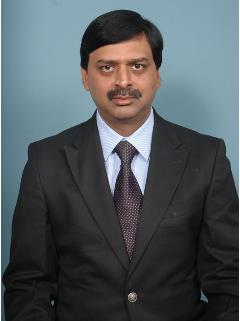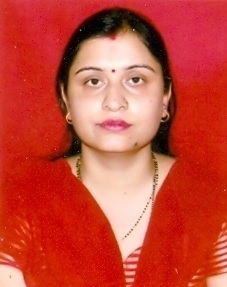
This is the department of MBA.

Everything is written.

Everyone's innovative.

All about Management.

Success is what we achieve.
Welcome to the department of MBA at Krishna Engineering College!!
Aim
The Department of Management Studies play a significant role in developing students into true professionals ready to take on the business dynamics with great zeal and conviction. We aim to train future Technocrats/Engineering Managers through concerted efforts and careful nurturing. The department caters for academic curriculum pertaining to Management Studies as per University syllabus in B Tech 2nd yr, 3rd yr and 4th yr across all branches.
The students are taught Industrial Psychology and Industrial Sociology with an objective to make them familiar with industrial set up and corresponding behavioral patterns. The subjects of Engineering Economics and Industrial Management enable them correlate their projects with the financial components in an industrial setting. We also develop the students keen to be the entrepreneurs, by imparting an in depth knowledge about the Entrepreneurship and basic requirements in setting up a small scale industry.
Scope:
The scope of computer science& Information Technology is endless. The students of the computer science and engineering & Information Technology are highly demanded by the recruiters of the top companies. The department provides platform for the students to achieve their career goals.
Vision:
Empowering students from diverse backgrounds to become productive and ethical technocrats/ Engineering Managers.
Mision:
The Department of Management Studies has created new TEMPOS in technical and managerial education with sole mission of converting students into true professionals and is committed to excellence in integrated technology, experiential education, professional enrichment, career orientation and student's advancement.
Programme Educational Objectives:

MA, MBA
pradip.pathak@krishnacollege.ac.in
Message:
Management is concerned with human beings whose behavior is highly unpredictable. Managing has been essential to provide the coordination of individual’s efforts. Management is found in every walk of life. It brings together basic resources popularly known as 6 M’s – Men, Material, Machines, Methods, Money and Market. This helps to achieve the expected results quickly and economically in terms of production, sales, profit and goodwill in the market.
Management as a unique field of study is a synergy of economics, political science, human psychology, operations research and statistics as well as sociology. It is therefore, to be understood from all these perspectives. The study becomes more dynamic since it is applicable in a vibrant, ever changing and complex environment. The principles, rules and guidelines related to Management are so versatile that we find its pervasiveness everywhere. They guide probably in all situations, but their interpretations keep on changing in every such situation and from person to person. Various research works have yielded that 90% of the business failures occur because of inefficient / inadequate management in contrast to the remaining 10% which fail because of all other reasons combined together. The department of management is committed to impart adequate knowledge through interactive sessions, role plays, Management by objective (MBO) and case studies on different concepts/theories of Management. I feel proud to lead an intellectual group of faculties. I am also confident that our students would continue to prove their mettle in professional arena and bring laurels to the Institution as usual.





Department of Computer Science & Engineering |
|
List of Some Research Papers |
|
1 |
Pathak Pradip (2011), “Operations & Quantitative Management” in the Proceedings of International Conference on Managerial Challenges & Emerging Trends , 'Symbiosis Institute of Operations Management’, SIOM, Nashik (Maharastra), India. |
2 |
Pathak Pradip (2012), “Environmental Challenges: A Case Study of Indian Automobile Industry” in the Proceedings of International Conference on Manage , ' Indian Institute of Management’, IIM,Bangalore (Karnataka), India. |
3 |
Pathak Pradip (2013), “Project Management: An Organized Venture for Managing Projects in Business Dynamics” in the Proceedings of International Conference on Managerial Practices & Trends , ' Indian Institute of Management’, IIM,Bangalore (Karnataka), India. |
4 |
Pathak Pradip (2014), “Project Management: An Organized Venture for Managing Projects in Business Dynamics” in the Proceedings of International Conference on Managerial Practices & Trends , ' Indian Institute of Management’, IIM,Bangalore (Karnataka), India. |
5 |
Pathak Pradip (2010), Turn Around Management- A modern Approach to Corporate Restructuring: Journal of Vishveshwaraya School of Business Management, 2(1), pp.16-21. |
6 |
Pathak Pradip (2011), Mergers and Acquisitions in India: The Managerial Strategy of Survival and Growth: Journal of Vishveshwaraya School of Business Management, 3(1), pp.43-50. |
7 |
Pathak Pradip, Dayal Rahul (2012), Correlation between Environmental Forces and Levels of Changes in ISO-14001 Certified companies in India: Srujan, 1(2), pp.46-53. |
8 |
Pathak Pradip, Dayal Rahul (2013), GSCM: A Rational Approach to Global Environmental Concerns: Srujan, 2(3). |
9 |
Goel Rama (2011), “Management Support for change” in the proceedings of International Conference on O.D. (ICOD2011) in I.M.T., Ghaziabad. |
10 |
Goel Rama (2011), “Top Management Sponsorship for Organizational Change” in the ‘Emerging Management Techniques in Economic Development in India- WISDOM’ journal of VSBM, Gr. Noida. |
11 |
Goel Rama (2012), “Innovative Strategies for Attrition Management” in the Handbook of Management and Behavioural Science, Wisdom Publications, Delhi, India, Vol.7, PP.No.-369-381, ISBN: 978-93-81505-37-3. |
12 |
Goel Rama (2014), “Productivity index of working women in service sector” in the Proceedings of International Conference on Emerging Trends in Global Management Practices – An Interdisciplinary Approach, 'Symbiosis Centre for Management Studies’, Noida (U.P.), India, ISBN 978-81-928678-0-9 |
13 |
Goel Rama (2014) ,“Professional women striving for balance” in the proceedings of National Conference on ‘Innovation and Challenges in Management Practices’ in BCIPS, New Delhi. |
14 |
SanwalTanushree, Bahugana, B.C. (2009), Anger Management through Intelligence and Full Engagement: Journal of Vishveshwaraya School of Business Management, 1(2), pp.33-36 |
15 |
SanwalTanushree (2009), Book review of “Compensation management” By Mousumi S Bhattcharya and Nilanjan Sen Gupta (Authors): Paradigm, The research journal of Institute of management technology, 13(1) pp. 115-116. |
16 |
SanwalTanushree (2009), Comparative Study of Social Intelligence in Kolkata: Children from Planned Housing and Slums, The Indian Journal of Social Work, Journal of Tata Institute of Social Sciences, 70 (4), pp.633-645. |
17 |
SanwalTanushree, (2009), Organizational Culture and Organization Commitment: Compendium of Selected National Papers, Management Practices Beyond Recession Vol VI, Perfect Publications Pvt. Ltd., New Delhi, pp. 45-49. |
18 |
Kaushik Archana, SanwalTanushree (2010), Determinants of Social Intelligence Among Elderly: Indian Journal of Gerontology, A quarterly journal devoted to research on ageing, 24 (1), pp. 81-96 |
19 |
SanwalTanushree, Kumar Sudhanshu (2011), Elder Abuse: HelpAge India Research and Development Journal, 17 (3), pp. 40-48. |
20 |
SanwalTanushree (2011), “Performance Appraisal”, E- Book on Management Practices and Research, Business Strategies for the Next Decade bearing ISBN: 978-81-906991-6-7. |
21 |
SanwalTanushree (2012), “Training Initiatives for the Construction Industry: A Case of CIDC” in Positive Initiatives for Organizational Change and Transformation by GD Sardana and TojoThatchenkery (Ed.), Macmillan Publishers India Ltd, Delhi, pp. 253-259. |
22 |
Joshi, Neha and Abbas, Shariq S.M. (2012) “Organizational Work-life Balance Policies: A Study on Indian Insurance and Banking Sector”, in Aditya International Journal of Research in Technology and Management, vol. 1, issue no. 9, (February), pp. 74-85. ISSN 2248-9665 |
23 |
Abbas, Shariq S.M. and Joshi, Neha (2012) “A Descriptive study of Workplace Conflict Management Styles in Indian Organizations”, inPranjana: The Journal of Management Awareness, vol. 15, no. 2, (July-December), pp. 22-35. ISSN 0971-9997 |
24 |
Chaudhary Aishvarya (2011), “SME’s A Major Source of Employment Generation in India: An empirical study relating to employee satisfaction in direct relation to revenue generation”: in proceedings of National Seminar on “Re-Engineering Profits-Improving Profitability of SMEs. |
25 |
Chaudhary Aishvarya (2011), “Working with emotional intelligence leads to improving profitability of SMEs”: in proceedings of National Seminar on “Re-Engineering Profits-Improving Profitability of SMEs. |
26 |
Chaudhary Aishvarya (2011), Importance of designing training programs in the changing small organization (SMEs). : in proceedings of National Seminar on “Re-Engineering Profits-Improving Profitability of SMEs. |
